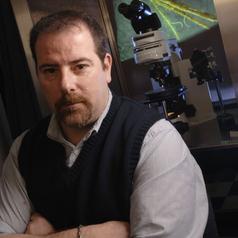
Laurence Zwiebel
Professor of Biological Sciences and of Pharmacology, Vanderbilt University
The major focus of the Zwiebel laboratory is the characterization of specific genes and their products that control important behavioral processes in the life cycle of insects that act as disease vectors, particularly host (i.e. blood-meal source) seeking/selection in the mosquito Anopheles gambiae, the principal vector for malaria in Africa. Malaria is caused by a protozoan parasite of the genus Plasmodium that is transmitted to humans through blood feeding by female Anopheline mosquitoes. In this context, the Zwiebel lab is examining the molecular events of olfaction, as this sense predominates the overall host preference and other essential behaviors in mosquitoes and other insects. This aspect of the mosquito’s behavior is especially important as it makes a significant contribution to the vectorial capacity of this arthropod vector, as well as playing a similar role in the overall impact of many other insects of economic importance.
Less ![]()
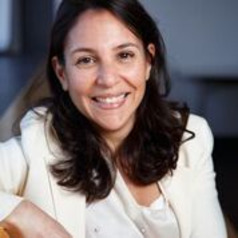
Laurencia Villalba
Honorary fellow, Faculty of Science, Medicine and Health, Graduate School of Medicine, University of Wollongong
Associate Professor Villalba is Wollongong’s only female vascular surgeon. Laurencia is the Head of the Vascular department at Wollongong Hospital and founder of the Vascular Care Centre, located on Crown St, Wollongong.
In 2018 Laurencia was selected to become a member of the Court of Examiners, this is a board of high performing surgeons who assess the competencies of candidates, in order to ensure that they are safe and competent to practice as surgeons. Laurencia is the first ever female surgeon to be a part of this prestigious group.
Laurencia became an Associate Professor in 2017 and has been teaching at Wollongong University since 2008. She is a highly sought after national and international speaker, speaking at medical conferences around the globe on topics such as May Thurner syndrome, Deep vein thrombosis and Pulmonary embolism treatment. “I believe in quality of life, patient education and personalized care. I treat all my patients as if they were my own family”
Less ![]()

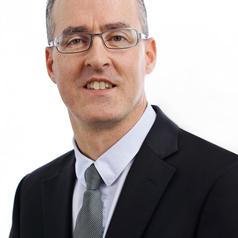
Laurent Bazinet
Professeur en sciences et technologies des aliments, Université Laval
Le Dr Laurent BAZINET est professeur, au département de Sciences des Aliments, à l'Université Laval où il enseigne l’ingénierie des procédés industriels alimentaires. Il est titulaire de la Chaire de Recherche en partenariat sur la Valorisation Intégrée des coproduits par des Technologies ALimentaires écoefficientes dans le cadre d’une Économie circulaire et directeur du Laboratoire International Associé sur la Bioproduction d’Antimicrobiens Naturels.
Ses intérêts de recherche portent sur l’étude des phénomènes électrodialytiques et leurs impacts sur les composés bio-alimentaires et leurs bénéfices santé. Il dirige 2 M.Sc., 10 Ph.D et 5 Post-doc dans le cadre de projets de recherche dont le budget total annuel s’élève à plus de 1.0 M$. Le Dr. Bazinet a publié plus de 267 articles et depuis 2020, il est reconnu comme le leader mondial de l'électrodialyse avec membrane de filtration et comme faisant partie du 2% des meilleurs scientifiques au monde.
Less ![]()
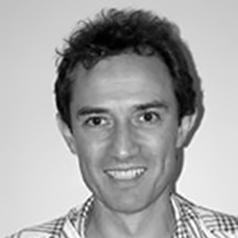
Laurent Fourchard
Research Fellow, Sciences Po
Laurent Fourchard, historian and political scientist, is a research professor at the National Foundation for Political Science (CERI).
Research Fields: Violence and security, governance of metropolises, vigilantism, history and political sociology of Nigeria and South Africa, history and historiography of contemporary Africa, History of Nigerian migration to Italy.
Less ![]()
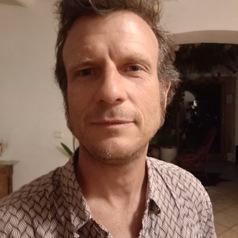
Laurent Husson
Earth sciences researcher, Université Grenoble Alpes (UGA)
Geophysicists call me a geologist, geologists call me a geophysicist. In practice, I am mostly interested in quantifying the processes operating within the Earth system in general. The geosphere is central to my research, but the atmosphere, biosphere, and hydrosphere are indiscriminately crucial to my research.
Less ![]()
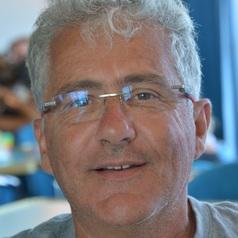
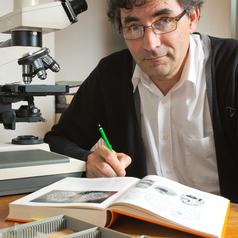
Laurent Palka
Maître de conférences, Muséum national d’histoire naturelle (MNHN)
Je suis spécialiste des protistes, procaryotes et champignons mycorhizogènes, dans le domaine de l'écologie des sols et de l'écologie urbaine (toits végétalisés).
Crédit photo : Patrick Lafaite.
Less ![]()
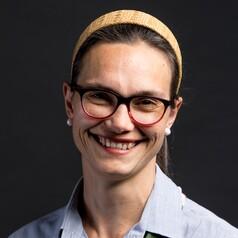
Laurette Marais
Senior Researcher, Council for Scientific and Industrial Research
Laurette has been researching and developing human language technology for the South African languages since 2009. Her primary interest is in developing high accuracy computational language resources for the South African languages and to apply these in ways that contribute directly to a sustainably multilingual South Africa.
Less ![]()
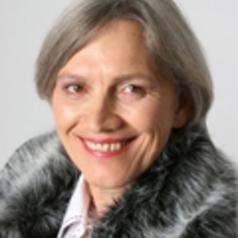
Laurette Pretorius
Professor Extraordinarius, Stellenbosch University
I obtained the following qualifications:
1974: BSc (Mathematics and Computer Science) (Stellenbosch University)
1975: BSc Hons. (Computer Science) (Stellenbosch University)
1980: BSc Hons. (Mathematics) (University of South Africa)
1981: MSc (Applied Mathematics) (University of Pretoria)
Title of full dissertation: A global method for solving stiff differential equations,
Supervisor Prof J A Snyman
1987: DSc (Applied Mathematics) (Potchefstroom University for CHE, now the North-West University)
Title of thesis: Gauss-type quadrature formulas for spline functions
Supervisor Prof D P Laurie.
2019-2021: Zulu I, II and III and Sepedi I, II and III (University of Pretoria)
2022-2024 (yet to be completed): MA (African Languages) (University of Pretoria)
Title of dissertation: A Northern Sotho GF resource grammar: From grammar to corpus and Back
Supervisor: Prof E Taljard.
Less ![]()

Laurie Johnson
Professor in English Literature and Cultural Studies, University of Southern Queensland
Laurie Johnson is Professor of English and Cultural Studies at the University of Southern Queensland, and a Fellow of both the Society of Antiquaries of London and the Royal Historical Society. He is immediate past President of the Australian and New Zealand Shakespeare Association, an Academic Adviser to the Museum of Shakespeare in Shoreditch, London, and Research Dramaturge for the Oxford Marlowe Project. Laurie is a recipient of the Australian Learning and Teaching Council Citation for Outstanding Contributions to Student Learning, and has published more than 60 books, chapters, and journal articles in cultural and literary studies, theatre history, and Shakespeare studies.
Less ![]()
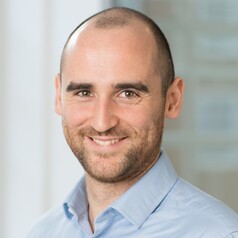
Laurie Laybourn
Visiting Fellow, Global Systems Institute, University of Exeter
Laurie Laybourn is an award-winning policy researcher, author, and strategist. He is executive director of the Strategic Climate Risks Initiative (SCRI), a think-and-do tank that helps develop capabilities for securing a better world even as the environmental crisis escalates. He is an associate fellow at Chatham House, a visiting fellow at the Global Systems Institute, University of Exeter, and an associate fellow at the Institute for Public Policy Research (IPPR). He is a trustee of the New Economics Foundation (NEF) and sits on the board of the Economic Change Unit, an organisation he founded. Previously, he was Director of the UK Health Alliance on Climate Change and has worked at the LSE, Oxford University, and the UK Parliament. Laurie regularly appears on television, radio, and in print. He is co-author of Planet on Fire: A manifesto for the age of environmental breakdown (Verso 2021).
Less ![]()
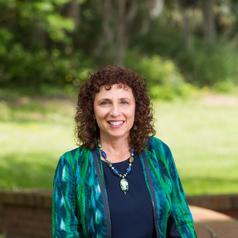
Laurie Mintz
Emeritus Professor of Psychology, University of Florida
Dr. Laurie Mintz is a feminist author, therapist, emeritus professor, and speaker whose life’s work has been committed to helping people live more authentic, meaningful, and joyful lives through the art and science of psychology.
While both a tenured Professor, and now and Emeritus Professor at the University of Florida, Dr. Mintz teaches the Psychology of Human Sexuality to hundreds of undergraduate students each year. Mintz has published over 50 research articles in academic journals and six chapters in academic books. She has received numerous professional and teaching awards. She is a Fellow of the American Psychological Association, indicating that her work has had a positive national influence on the field of psychology.
She is the author of two popular press books—both written with the aim of empowering women sexually and both with published studies showing that women who read them enhance their sexual functioning: Becoming Cliterate: Why Orgasm Equality Matters and How to Get it (HarperOne, 2017) and A Tired Woman’s Guide to Passionate Sex: Reclaim Your Desire and Reignite Your Relationship (Adams Media, 2009). Becoming Cliterate has received national awards and international acclaim, earning Mintz a spot on Forbes "50 over 50" list of women innovators. Mintz also gives presentations and workshops to professionals and lay audiences and is often quoted in national and international media.
For over 25 years, Dr. Mintz has also maintained a small private practice, working with both individuals and couples on general and sexual issues. One of her greatest honors is supporting her clients during difficult times, as well as helping them make positive changes and reach life goals.
Less ![]()
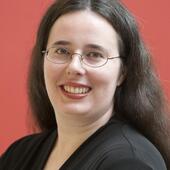

Laurie-Anne Kosak
Masters student, Psychoeducation, Université de Montréal
I am currently completing my master's degree in psycho-education at the Université de Montréal. My research looks at the impacts throughout life of early healthy lifestyle.
Less ![]()
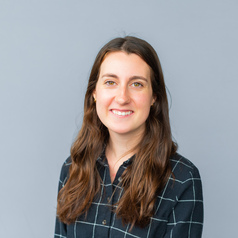
Lauryn Stafford
Fellow in Health Metrics Sciences, University of Washington
I am a third-year Post-Bachelor Fellow at the University of Washington (UW) Institute for Health Metrics and Evaluation (IHME), and a part-time UW graduate student in the MS Health Metrics Sciences program with graduation in August 2023. At IHME, I am responsible for diabetes mellitus disease burden and high fasting plasma glucose risk burden estimates for the Global Burden of Disease (GBD) study.
In 2020, I received my undergraduate degrees in Public Health-Global Health (BS) and Economics (BA). By being able to take courses in both these majors, I was able to explore my interests in global health economics and the crucial intersection between financial stability and health. As an undergraduate, I was able to participate in a study abroad program through the School for International Training (SIT) in India focusing on public health, gender equality, and community-based initiatives. I was also an Undergraduate Research Assistant on the Cost Effectiveness team at IHME before continuing at IHME as a Post-Bachelor Fellow.
Less ![]()
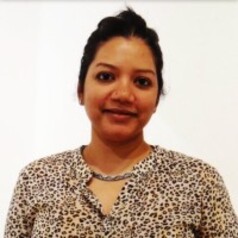
Lavina Sequera
Scientific Research, Unesco
Lavina Sequera is a Masters graduate, a merit scholarship holder (2022-2023) from the University for Peace - UN Mandated (UPEACE) in International Law and Human Rights, with an internship with the Natural Sciences Unit at the United Nations Education, Science and Cultural Organisation (UNESCO as a Scientific Researcher to the Chief of the Unit. With over 16 years dedicated towards social and humanitarian initiatives across Government, Private and Not-for-Profit’s in India, she spearheaded India’s largest rural CSR program for Hindustan Unilever Ltd. spanning across 70,000 villages in 2010-12 and yet again, established a women’s empowerment, income-generating program across 600+ rural artisans, preserving endangered craftwork for Souvenirs of Soil Pvt. Ltd.
In the past, she supported humanitarian initiatives such as mapping rural Tanzania to combat Female Genital Mutilation (FGM) under the aegis of the UN; mediated legal / international aid sustaining the welfare of children in an orphanage in Madhya Pradesh, volunteered for the Blind School in Worli, Mumbai, for Street Children in Mumbai Central, Mumbai and is currently a Member of The Maharashtra State Women’s Council which runs 10 NGO's in Mumbai.
Recognized among Asia’s Top Sustainability Superwomen 2019 by CSRWorks International and Global Reporting Initiative, Singapore and recipient of the Eco-Business A List award for ‘Sustainability Leadership during Covid-19’ by Eco-Business in partnership with Trucost, part of S&P Global, Singapore, Noted as one of 'Women for Change 2021' by ChangeNow, Lavina Sequera is currently Hon. Executive Director Women Empowerment and Global Goodwill Ambassador for Human Rights and Peace for India and Hon. Executive Director – CSR, National Council of News and Broadcasting – for an human rights based organization both, signatories to UNGC.
She also works with animal activists for emergency response, aid and activism.
Less ![]()
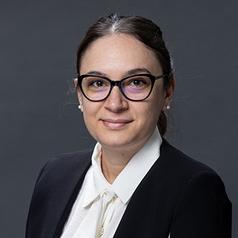
Lavinia Iancu
Assistant Professor of Forensic Science, Director of the Forensic Science Program, University of North Dakota
Dr. Iancu received her Bachelor of Science degree in Biology (Faculty of Biology, Bucharest University), followed by two master’s degree programs (European Master of Forensic Sciences and Medical Biology Master). She earned the PhD title in biology (forensic entomology and microbiology expertise) within the Romanian Academy, Institute of Biology Bucharest.
In her research, Dr. Iancu is committed to advancing the study of forensic entomology and microbiology, aiming to identify novel biomarkers for the estimation of the postmortem interval (PMI). The research focuses on investigating the necrophagous insects and bacteria diversity and dynamics associated with decomposed tissue, in correlation with the climatic parameters, aiming to provide new data useful for forensic investigations worldwide by emphasizing novel PMI estimators.
Her concept of education consists greatly in teaching with passion, in respecting each student and inspiring them through the way of being and existing; treating each student individually, being able to observe their motivation and passions. Her beliefs are that a professor needs to support the students, find what really motivates them, and in the forefront of forensic sciences, a goal unites them all, the fight for justice and finding out the truth; and in this sense, knowing that each student has their own motivation they can work in a team, where each one can bring their contribution.
Dr. Iancu’s experience and contributions to the field have been recognized by the numerous peer-reviewed articles in the field, by the Henry C Lee scholarship Award, the AAFS Outstanding Early Career Achievement in Forensic Science Award received from the American Academy of Forensic Sciences, The Fulbright Senior Award for initiative and leadership in advancing forensic entomology research, the Romanian Academy “Grigore Antipa” Award, granted for the pioneering work in the field of forensic entomology and microbiology, and the Itterman Faculty Professional Development Award granted by the College of Arts & Sciences in recognition of exemplary teaching while maintaining excellence in research and service.
Less ![]()

Lawrence Bamblett
Senior Lecturer, Australian Centre for Indigenous History, Australian National University
Lawrence Bamblett is the Director of the Australian Centre for Indigenous History at ANU.
Less ![]()
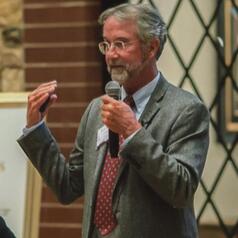
Lawrence Conyers
Professor of Anthropology, University of Denver
Lawrence Conyers is an anthropologist with expertise in exploring and mapping ancient burial sites using ground-penetrating radar technology.
Less ![]()
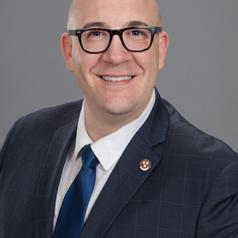
Lawrence David
Part-Time Professor of Law, University of Ottawa, Faculty of Law, L’Université d’Ottawa/University of Ottawa
Less ![]()
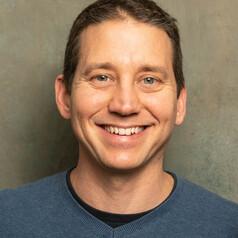
Lawrence Ezrow
Professor, Department of Government, University of Essex
Lawrence Ezrow is a Professor in the Department of Government at the University of Essex. His research interests include elections, parties’ election strategies, and European Politics. He has served as Head of the Department of Government (2016-19), and he has published articles in journals including the American Journal of Political Science, American Political Science Review, British Journal of Political Science, and Journal of Politics.
Less ![]()
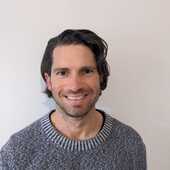
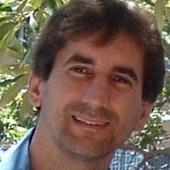
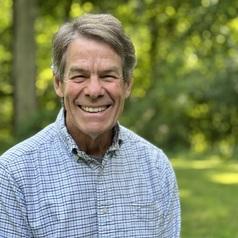
Lawson R. Wulsin
Professor of Psychiatry and Family Medicine, University of Cincinnati
My teaching and research has focused on mind-body questions. I practice psychiatry in a variety of primary care settings, and I specialize in psychosomatic medicine. I've spent the past 30 years training physicians to be both family doctors and psychiatrists. My first book Treating the Aching Heart (2007), presents a guide to the circular relationships among depression, stress, and heart disease. My second book, Toxic Stress (2024), explores how some kinds of stress are killing us early and what we can do about it. Over the last ten years I have posted blogs on two themes: Pearls from our Stress Response System, and the Art and Science of Making Contact.
Less ![]()


Layckan Van Gensen
Junior Lecturer in Mercantile Law, Stellenbosch University
I am a sports lawyer and an admitted attorney. My interest lies in "Image Rights "and recently I obtained my LL.D at the University of Stellenbosch which focused on this topic. I also completed my LL.M and my undergraduate education (B.Acc.LLB) at the University of Stellenbosch and currently I am a junior lecturer in the Mercantile Law Department at the University
Less ![]()
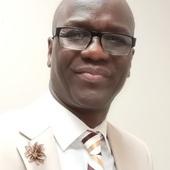

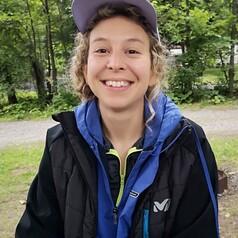
Léa Denieul-Pinsky
PhD Candidate Geography, Planning, Environment, Concordia University
Based in Kanien’keha:ka (Mohawk) territory in and around Montreal, Léa's fieldwork explores ways to leverage mapping to expand negotiation opportunities and enter in dialogue with various stakeholders in potentially conflictual situations. As a cartographer specializing in mapping governmental and ecclesiastical archives, she repurposes state-sanctioned historical materials, producing maps to augment how Indigenous-led campaigns reach their target audiences.
Less ![]()
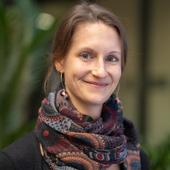
Lea Frermann
Senior Lecturer in Natural Language Processing, The University of Melbourne, The University of Melbourne
Less ![]()
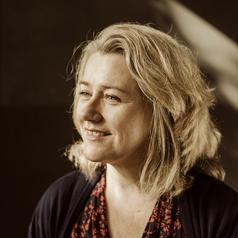
Lea Redfern
Lecturer, Discipline of Media and Communications, University of Sydney
Lea Redfern is a lecturer with the Department of Media and Communications at the University of Sydney, specialising in audio and podcasting.
Less ![]()
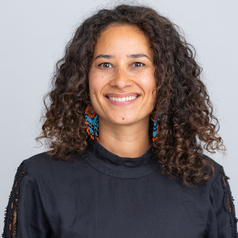
Léa Vuong
Senior Lecturer in French Studies, University of Sydney
Dr Léa Vuong is a senior lecturer and current Chair of French and Francophone Studies at the University of Sydney. She works primarily on modern and contemporary French art and literature. She co-edited a recent issue of Word & Image on Louise Bourgeois’s archives. Her book Louise Bourgeois: The artist as writer will be published by Penn State University Press in 2025.
Less ![]()
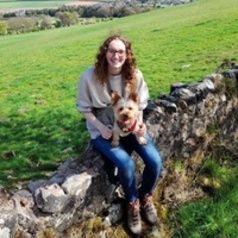
Leah Gray
PhD in Conservation Science, University of Aberdeen
PhD Student. My project focusses on the impacts of agricultural wetland management and predation pressure on the breeding success of wading birds on the Orkney Islands, with specific focus on the effects of the ongoing stoat invasion and eradication scheme. The islands support internationally important densities of breeding waders, and my project aims to advise the development of effective agricultural wetland management to improve breeding wader outcomes. The project is in collaboration with the RSPB, NatureScot, and The Orkney Native Wildlife Project.
Before starting my PhD, I graduated in Zoology from The University of St Andrews where I researched nest building behaviour in blue tits, specifically demonstrating how temperature changes influenced the timing of nest building behaviours. During my undergraduate degree I discovered a passion for research and went on to complete an MRes degree at St Andrews. This project focussed on group anti-predator behaviour in flocks of Eurasian oystercatchers on Eden Estuary, demonstrating how oystercatchers transfer departure information between group members and how the group processes departure information to co-ordinate decisions.
I am passionate about conserving Scotland’s avian biodiversity and connecting people to nature through bird watching. In my free time I most enjoy being outside with my dog, usually with binoculars in hand. I am also training to be a bird ringer, helping to monitor the survival of important Scottish bird species such as crossbills.
Less ![]()
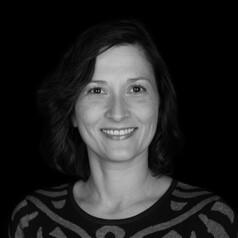
- Market Data





















